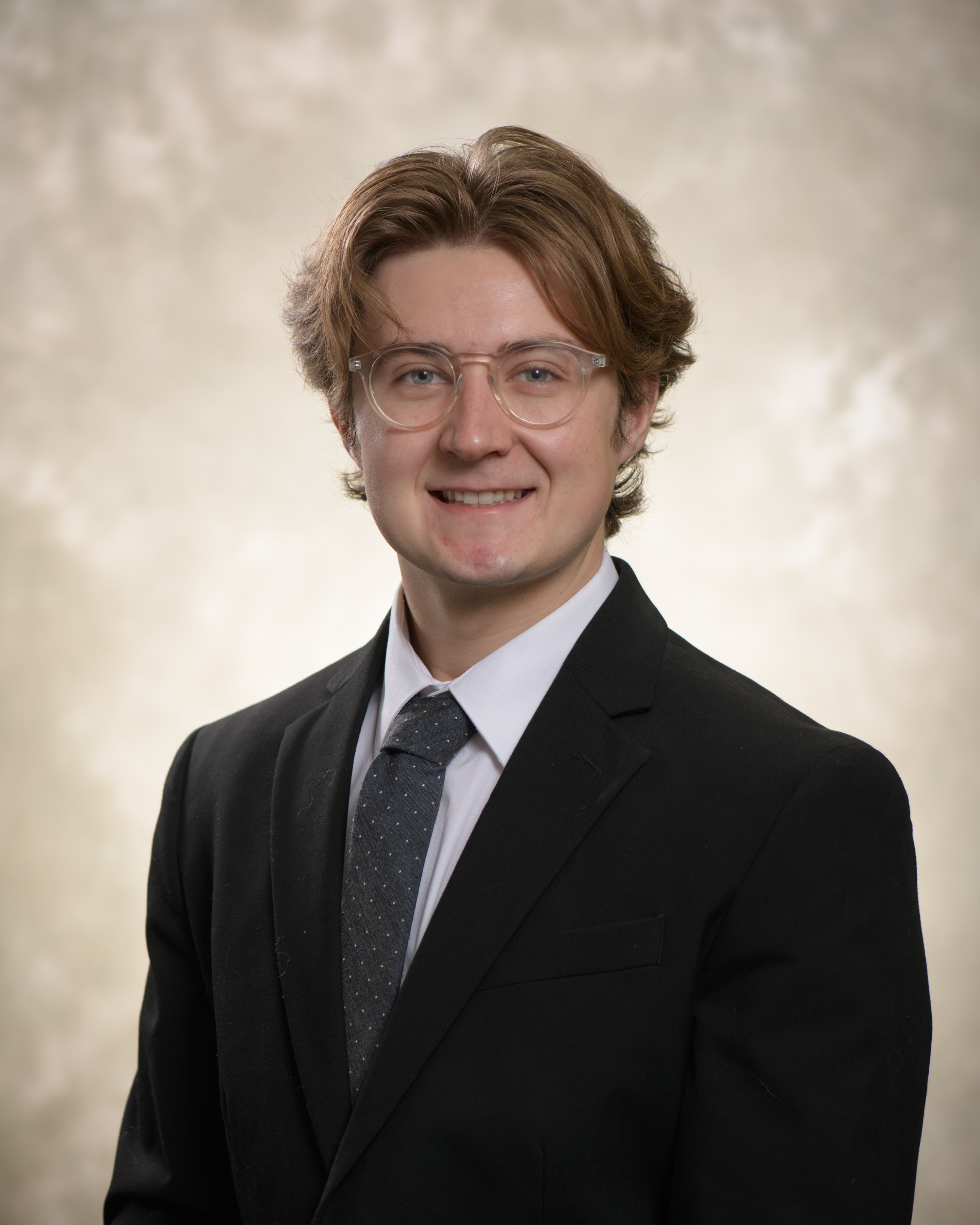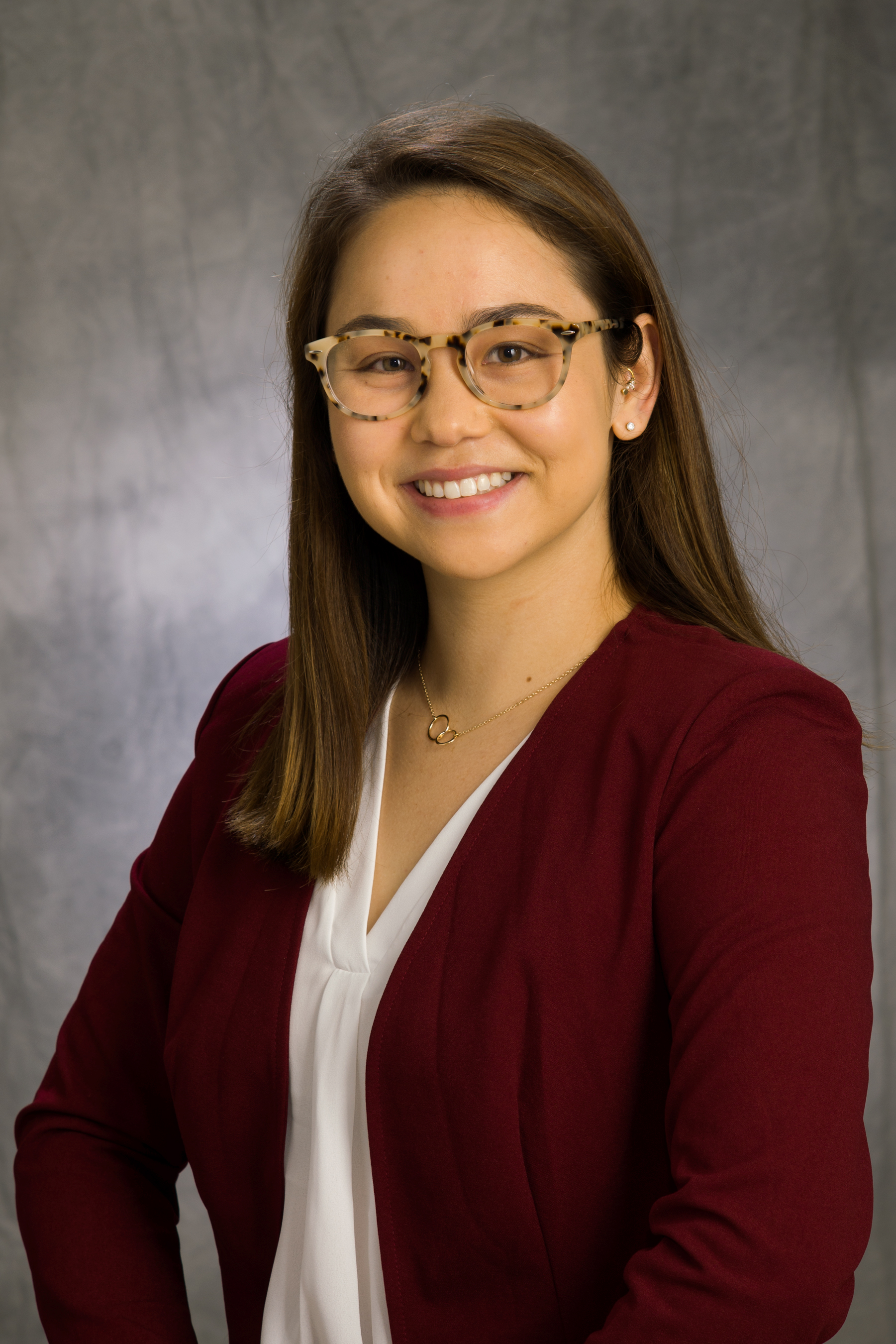Article
Two graduate students will present their research at the next Beckman Graduate Student Seminar: Chelsea Swartchick, chemistry; and Alexander Fliflet, kinesiology and community health.
The event takes place Wednesday, March 6 at noon in 5602 Beckman Institute. Register to attend and receive lunch.
 Alex Fliflet.
Design of an extracellular vesicle therapy to recover muscle following disuse atrophy
Alex Fliflet.
Design of an extracellular vesicle therapy to recover muscle following disuse atrophy
Immobilization is necessary for recovery from illness or bone fractures. However, prolonged immobilization can result in significant loss of muscle mass and function. It is critical to recover muscle mass quickly following immobilization as severe muscle atrophy is correlated with increased likelihood of metabolic disorders, disability, and mortality. Physical rehabilitation can improve outcomes but is not always feasible. The purpose is to determine the extent to which extracellular vesicles circulating in blood after endurance exercise training act as a safe and effective therapy to recover skeletal muscle mass following disuse. EVs isolated from plasma after exercise can significantly improve skeletal muscle vascularization after immobilization, which may represent an important step toward full recovery of skeletal muscle mass. In this talk I will discuss the developments of an extracellular vesicle therapy to recover skeletal muscle. I will also discuss the potential and future work of using extracellular vesicles in therapy.
Alex Fliflet is a fourth-year Ph.D. student in kinesiology and community health working with Professor Marni Boppart. He studies the effects of disuse atrophy on skeletal muscle and novel therapeutics to recover skeletal muscle mass. He received his B.S. in molecular and cellular biology and M.S. in kinesiology at the University of Illinois Urbana-Champaign.
Activity-based logic-gate probe reveals crosstalk between the inflammatory tumor microenvironment and the ALDH1A1 cancer stem cell biomarker
 Chelsea Swartchick.
Although cancer stem cells represent only a small subpopulation of a malignant tumor, they have a disproportionate impact on chemotherapeutic resistance and cancer relapse. CSCs are commonly identified by the overexpression of aldehyde dehydrogenase
1A1, or ALDH1A1, which, in addition to its protective roles against reactive aldehydes, controls differentiation through the retinoic acid signaling pathway. However, methods to identify CSCs through this biomarker in vivo are scarce. Beyond their
low prevalence, properties of the tumor microenvironment are hypothesized to influence the number of CSCs, as well as their stemness profile. In this work, we have developed AlDeLuc, the first logic-gated bioluminescence probe for CSCs that is
sequentially activated by acidic environments and ALDH1A1 activity. The reliance on these two biomarkers is critical to ensure that off-target detection of non-CSCs within the body is minimized. Beyond demonstrating efficacy in multiple cancer
cell lines and a murine model of breast cancer, we employed AlDeLuc to investigate how the CSC population is altered by the inflammatory status of a tumor through a high-fat diet. The implication of this work provides a molecular link between
obesity, inflammation, and tumor progression.
Chelsea Swartchick.
Although cancer stem cells represent only a small subpopulation of a malignant tumor, they have a disproportionate impact on chemotherapeutic resistance and cancer relapse. CSCs are commonly identified by the overexpression of aldehyde dehydrogenase
1A1, or ALDH1A1, which, in addition to its protective roles against reactive aldehydes, controls differentiation through the retinoic acid signaling pathway. However, methods to identify CSCs through this biomarker in vivo are scarce. Beyond their
low prevalence, properties of the tumor microenvironment are hypothesized to influence the number of CSCs, as well as their stemness profile. In this work, we have developed AlDeLuc, the first logic-gated bioluminescence probe for CSCs that is
sequentially activated by acidic environments and ALDH1A1 activity. The reliance on these two biomarkers is critical to ensure that off-target detection of non-CSCs within the body is minimized. Beyond demonstrating efficacy in multiple cancer
cell lines and a murine model of breast cancer, we employed AlDeLuc to investigate how the CSC population is altered by the inflammatory status of a tumor through a high-fat diet. The implication of this work provides a molecular link between
obesity, inflammation, and tumor progression.
Chelsea Swartchick earned her B.S. in chemistry at the University of Portland. Currently, she is a fifth-year Ph.D. candidate specializing in organic chemistry working with Professor Jeff Chan. Her work is centered around the development and characterization of chemical tools via organic synthesis to enable the investigation of rare cell populations, i.e. cancer stem cells, and the tumor microenvironment that allows for their survival. Upon graduating, Chelsea plans to pursue a career in clinical chemistry.
Beckman Institute for Advanced Science and Technology